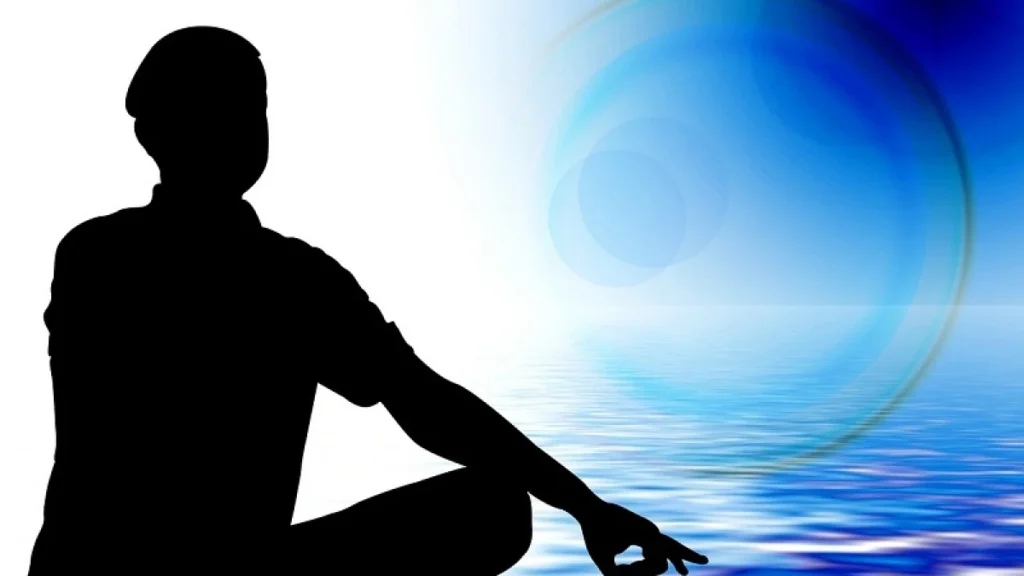In today’s fast-paced society, where we are constantly bombarded with information and responsibilities, maintaining our mental well-being can often feel like an uphill battle. However, amidst the chaos, there lies a powerful tool that can help us navigate through the noise and find inner peace: mindfulness.
What is Mindfulness?
Mindfulness is the practice of being fully present and engaged in the current moment, without judgment or distraction. It involves paying attention to our thoughts, feelings, bodily sensations, and the world around us with openness and acceptance. Rather than dwelling on the past or worrying about the future, mindfulness encourages us to focus on the here and now, cultivating a deeper awareness of our inner and outer experiences.

The Origins of Mindfulness
While mindfulness has its roots in ancient Buddhist meditation practices, it has gained widespread popularity in recent years thanks to scientific research validating its numerous benefits for mental and physical health. The concept of mindfulness can be traced back thousands of years to early Buddhist teachings, where it was referred to as «sati» or «smriti,» meaning «awareness» or «remembrance.» These ancient practices aimed to cultivate attention, clarity, and insight through various meditation techniques.
Modern Applications and Scientific Research
In the late 20th century, mindfulness began to attract attention in Western psychology and medicine, particularly through the work of Jon Kabat-Zinn, who developed the Mindfulness-Based Stress Reduction (MBSR) program at the University of Massachusetts Medical Center in the 1970s. MBSR integrates mindfulness meditation and yoga with cognitive-behavioral techniques to help individuals cope with stress, pain, and illness.
Since then, numerous studies have demonstrated the effectiveness of mindfulness in improving various aspects of mental and physical health. Research has shown that regular mindfulness practice can reduce symptoms of anxiety, depression, and chronic pain, enhance cognitive function and emotional regulation, and promote overall well-being. Neuroimaging studies have also revealed changes in brain structure and function associated with mindfulness, including increased gray matter density in areas related to attention, emotion regulation, and empathy.
Practical Applications of Mindfulness
Mindfulness can be practiced in various ways, including formal meditation sessions, informal mindfulness exercises, and integrating mindfulness into daily activities. Formal meditation involves setting aside time to sit quietly and focus on the breath or body sensations, observing thoughts and emotions as they arise without attachment or judgment. Informal mindfulness practices, such as mindful eating, walking, or listening, can be integrated into daily routines to cultivate greater awareness and presence in everyday life.
The Benefits of Mindfulness
Reduced Stress and Anxiety One of the most well-known benefits of mindfulness is its ability to reduce stress and anxiety. By focusing on the present moment, we can break free from the cycle of worry and rumination that often plagues our minds.
Improved Focus and Concentration Mindfulness has been shown to enhance our ability to concentrate and focus on tasks. By training our minds to stay present, we can increase our productivity and effectiveness in both work and daily life.
Enhanced Emotional Regulation Mindfulness helps us develop greater emotional awareness and regulation. Instead of reacting impulsively to our emotions, we learn to observe them with detachment and respond in a more balanced and constructive manner.
Better Relationships Practicing mindfulness can also improve our relationships with others. By being fully present with the people we interact with, we can cultivate deeper connections and foster empathy and understanding.
Incorporating Mindfulness Into Your Life
In today’s fast-paced world, incorporating mindfulness into your daily routine can be a powerful tool for reducing stress, enhancing focus, and improving overall well-being. While the concept of mindfulness may seem intimidating at first, integrating it into your life can be achieved through simple and manageable steps.
Start Small:
Incorporating mindfulness into your daily routine doesn’t have to be daunting. Start by setting aside just a few minutes each day for mindfulness meditation or simple breathing exercises. Find a quiet and comfortable space where you can sit or lie down without distractions. Close your eyes and focus on your breath, noticing the sensation of each inhale and exhale. If your mind wanders, gently bring your attention back to your breath without judgment. Starting with just a few minutes of mindfulness practice each day can help you build momentum and gradually increase the duration over time.
Practice Regularly:
Consistency is key when it comes to mindfulness. Make it a habit to practice mindfulness regularly, whether it’s through formal meditation sessions or informal practices like mindful eating or walking. Set aside specific times during the day when you can dedicate yourself to mindfulness practice, such as first thing in the morning, during your lunch break, or before bed. Integrating mindfulness into your daily routine helps reinforce its benefits and allows you to experience its effects more profoundly over time.
Incorporate Mindfulness Into Daily Activities:
Mindfulness can be integrated into various daily activities, making it more accessible and sustainable. Practice mindfulness while eating by paying attention to the taste, texture, and aroma of your food, as well as the sensations of chewing and swallowing. While walking, focus on the movement of your body, the sensation of your feet touching the ground, and the sights and sounds around you. Engaging in these activities mindfully can help you cultivate a deeper sense of presence and appreciation for the moment.
Be Patient and Gentle With Yourself:
Mindfulness is a skill that takes time to develop, so be patient and gentle with yourself throughout the process. It’s natural for your mind to wander during meditation or for you to encounter challenges along the way. Instead of becoming frustrated or judgmental, approach your practice with curiosity and openness. Each moment of mindfulness, no matter how brief, contributes to your overall well-being and growth.
Seek Support and Resources:
If you’re new to mindfulness or struggling to maintain a regular practice, seek support and resources to help you along the way. Consider attending a mindfulness class or workshop, reading books or articles on mindfulness, or using guided meditation apps or recordings. Connecting with a community of like-minded individuals can also provide encouragement, inspiration, and accountability as you embark on your mindfulness journey.
In conclusion, incorporating mindfulness into your life is a simple yet powerful way to enhance your overall well-being and quality of life. By starting small, practicing regularly, integrating mindfulness into daily activities, being patient with yourself, and seeking support and resources, you can cultivate a greater sense of presence, peace, and fulfillment in your life. Mindfulness is not just a practice but a way of living that can transform how you relate to yourself, others, and the world around you.
Stay Patient and Non-Judgmental Remember that mindfulness is a skill that takes time to develop. Be patient with yourself and approach your practice with a sense of curiosity and non-judgment. There’s no right or wrong way to be mindful—simply being open to the experience is enough.
Seek Support If you’re new to mindfulness or struggling to maintain your practice, don’t hesitate to seek support from a qualified mindfulness instructor or therapist. They can offer guidance and encouragement as you navigate your mindfulness journey.
 Creative agency information Information about media, marketing y creative
Creative agency information Information about media, marketing y creative




